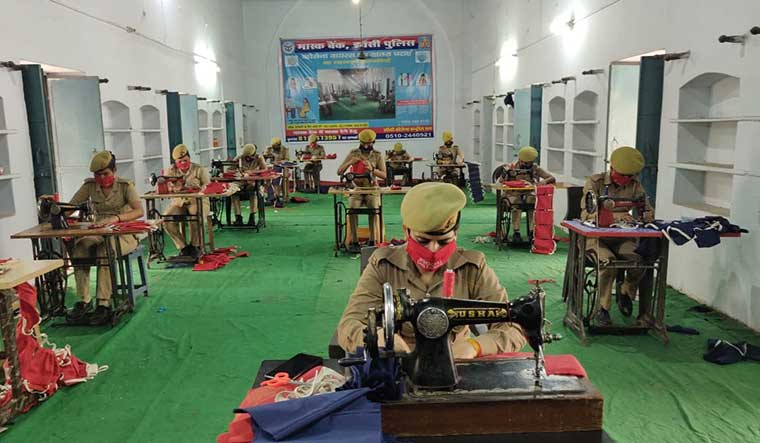The second wave of COVID has not only seen a surge of cases but also a surge in the humanitarian support that is coming in from across the globe. In Chennai, for example, there’s been a spurt in the number of people offering to cook for COVID patients. Many of them are recuperating at home and are struggling to have good nutritious food.
We present a snippet of some women who from little known cooks have now become Annapoornis (Goddess of nourishment) for COVID patients in Chennai.
Passion turns to purpose
Rama Parthasarthy discovered her love for cooking much before she became a teenager. But it wasn’t until the outbreak of the pandemic last year that Rama’s culinary delights started making its entry into Chennai homes.
Rama’s daughter-in-law, Shivakrupa Rajaram, who helps her in this venture, told The Better India.
“We saw what the virus was doing to people, and we decided to start making nutritious meals for those who needed it. The meals are what we eat ourselves at home, comprising of rasam, sambar, vegetable and rice,” she says.
Initially Ramaa’s Kitchen catered to people in and around Mylapore but as word began to spread they started delivering to other areas as well. On an average, Ramaa’s Kitchen provides 20 lunch orders and about 8 dinner orders every day.
Drawing from one’s experiences
For people like Divya Keswani, the decision to start cooking for COVID patients stemmed from her family’s own experience of dealing with COVID. Last year, when her family contracted COVID, they were fortunate to have a strong support system in the form of extended family and friends who took care of them. So, when they began to hear about people struggling to meet nutritional requirements while in isolation, in this second wave, they decided to do their bit. Divya, along with her mother-in-law and father-in-law began providing home-cooked meals for COVID patients, often adding into the food hamper some healthy snacks.
Similarly, Deshna Krupa, too, put out a message on Twitter to offer food for COVID patients. Ten members of their 14-member family had tested positive for COVID last year. Given the spike in cases this time around, she and her mother Ahalya decided to help by providing home-cooked food for COVID patients who are under home isolation.
Having herself recovered from COVID, Jayalakshmi Sundaresan, a costume designer, understands the importance of consuming nutritious food and that’s why she decided to do the same for others. She and her mother, Kalavathy Sundaresan, have so far provided home-cooked food for around 30 people. Their menu includes watermelon juice, salad, fruits, and pappadam.
Pooling in
But given that these are all initiatives, offered free and with limited human resources, the women are also only able to commit to a certain number of orders in a day. Like Neeta Jessani, an interior designer and baker, who along with her mother, limits the orders to 10 people at a time. The mother-daughter duo sends food for those individuals who live alone or those who have “exhausted their resources” or “can’t afford buying food from outside” and therefore are unable to afford nutritious meals.
A speech pathology student, Deepika Venkatachalam started the #CookforCovid initiative with a simple post offering to provide food for ‘home alone’ quarantined people. The initiative has built a community of 150 volunteers who prepare food and 70 of them who deliver it.
Inspired by her friend Harshni Sreedhar, who was cooking for COVID patients, Deepthi Tanikella too decided to join in and started Meals for Madras. But soon they realised they needed a mechanism to anchor this increasingly growing number of volunteers who wanted to provide food for those affected by COVID and recuperating at home. In stepped in, Srinidy Ravichandran who developed a glide app through which those looking for home-cooked meals can find a cook and those wanting to cook a meal can offer their service.
‘Mission Upkhar’ was started by Abinaya Karthick to provide meals to underprivileged patients. From the central kitchen in Villivakkam, the staff prepares and delivers all three meals, health malts, kabasura kudineer and kashayam to patients.
Apart from COVID patients, Janaki Kanya Rajesh, another volunteer in the city, has been delivering meals for elderly couples who have tested positive and are unable to cook for themselves.
Quietly and diligently from their humble abodes, unflinched by the sweltering Chennai summer, a steady stream of volunteers are cooking and serving COVID patients with the recipe to good health – nutritious home-cooked meals garnished with love and compassion.


